
Climate Change
The whole story in one picture:
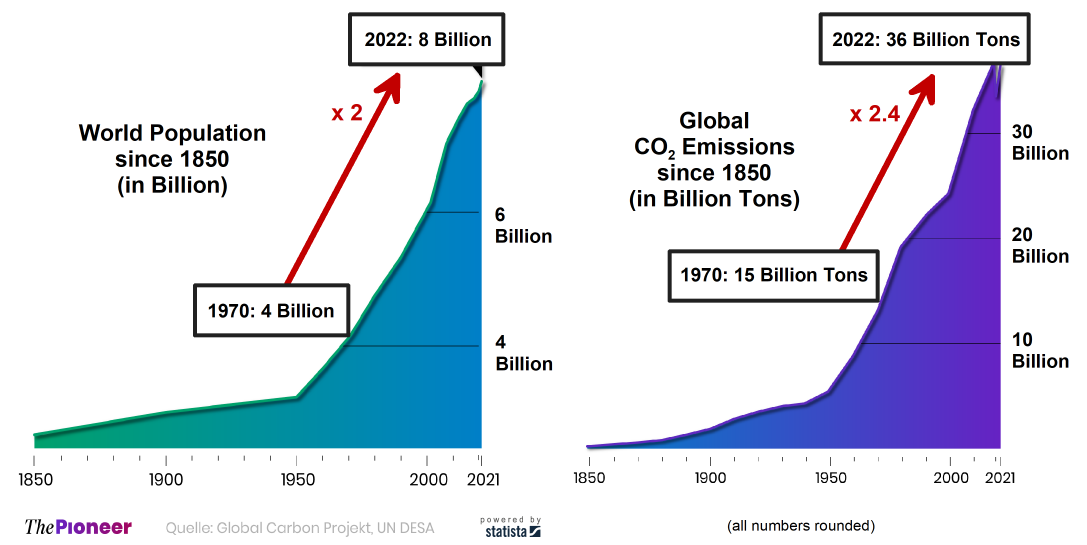
Having worked in and with the automotive industry for more than 40 years, emissions have always been a concern of mine. In my adult lifetime, from the 1970s to present, the world's population has roughly doubled (Figure 1 left). Population growth was mainly in Asia (China, India, ...) and Africa, while the population in the so-called developed world (North America, Europe, Japan, Australia) did not change much. Population growth was not caused by increasing birth rates, but by increasing longevity. People were no longer dying young because of great improvements in medicine, agriculture, and industrial food production. These innovations were driven by scientific research, industrial entrepreneurship, and technology invented in the developed world and spread from there to other countries. This is true, even if it may not be "woke" to say so.
Unfortunately, while the population has doubled, energy consumption and global CO2 emissions have more than doubled (Figure 1 right)! If we want to bring emissions back to 1970 levels, we must either (1) cut the world's population in half or (2) cut per capita CO2 emissions by more than half.
Alternative (1) is not something anyone should like, as it would require a much deadlier pandemic than Covid-19 or an even more bloody war than those in Ukraine, Syria, Afghanistan, Libya, or Iraq. Technically, some nukes from the USA, Russia, or China could do the job ... Hope not!
How realistic is alternative (2)? The Pareto principle tells us to start with what has the greatest impact. So let's ask which countries "sin" the most?
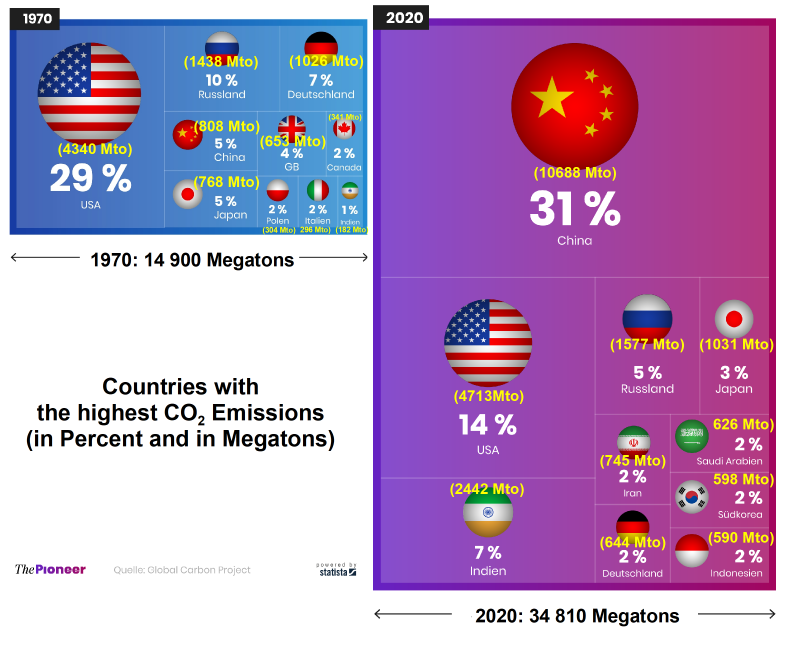
Shame on the "developed world" for producing most of the CO2 emissions since the beginning of the Industrial Revolution? Well, not so fast! While this was true in the 1970s (Figure 2 left), now the "emerging economies" have taken over with China, India, Indonesia, Iran, and Saudi Arabia together emitting more CO2 in absolute terms (Figure 2 right) than the entire world did in 1970 ... How dare you!?
Germany to the rescue?
Germany, where the Green movement seems to have taken over the country to save us all - at least if you believe in the published opinion? Well, Germany, with about 1% of the world's population, produces only about 2% of today's global CO2 emissions (Figures 2 right and 3). Even if all Germans stop breathing and thus go to absolute zero emissions immediately and forever - which some might think is a good idea anyway - mathematically it won't change anything for the world!
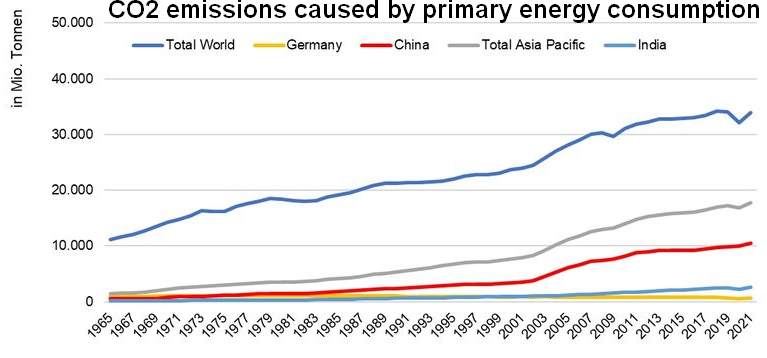
Europe's Green Deal?
Europe's share of the world's primary energy consumption is only about 10%. So from an engineer's point of view, even if Europe completely stopped using fossil energy, it would not move the needle for the world in a decisive way. Remember: a 10% difference is like driving 55 km/h rather than 50 km/h. Who cares?
So the Europeans can't stop climate change for the world, no matter what they do ...
The role of renewables?
If we look at the world's primary energy consumption (Figure 4), in 2021 renewables (sun, wind, ...) plus hydroelectric power provide about 15%. Nuclear power accounts for about 5%. The remaining 80% come from CO2-generating fossil fuels (Oil, Coal, Natural Gas). Even though their relative share may be decreasing slightly, in absolute terms they are still increasing significantly (Figure 5).
Is this likely to change? Not really, because those 7 billion people in Asia and Africa won't stop in their desire to raise their standard of living. And higher living standards go hand in hand with higher per capita energy consumption. At least that has been the case throughout the known history of mankind ...
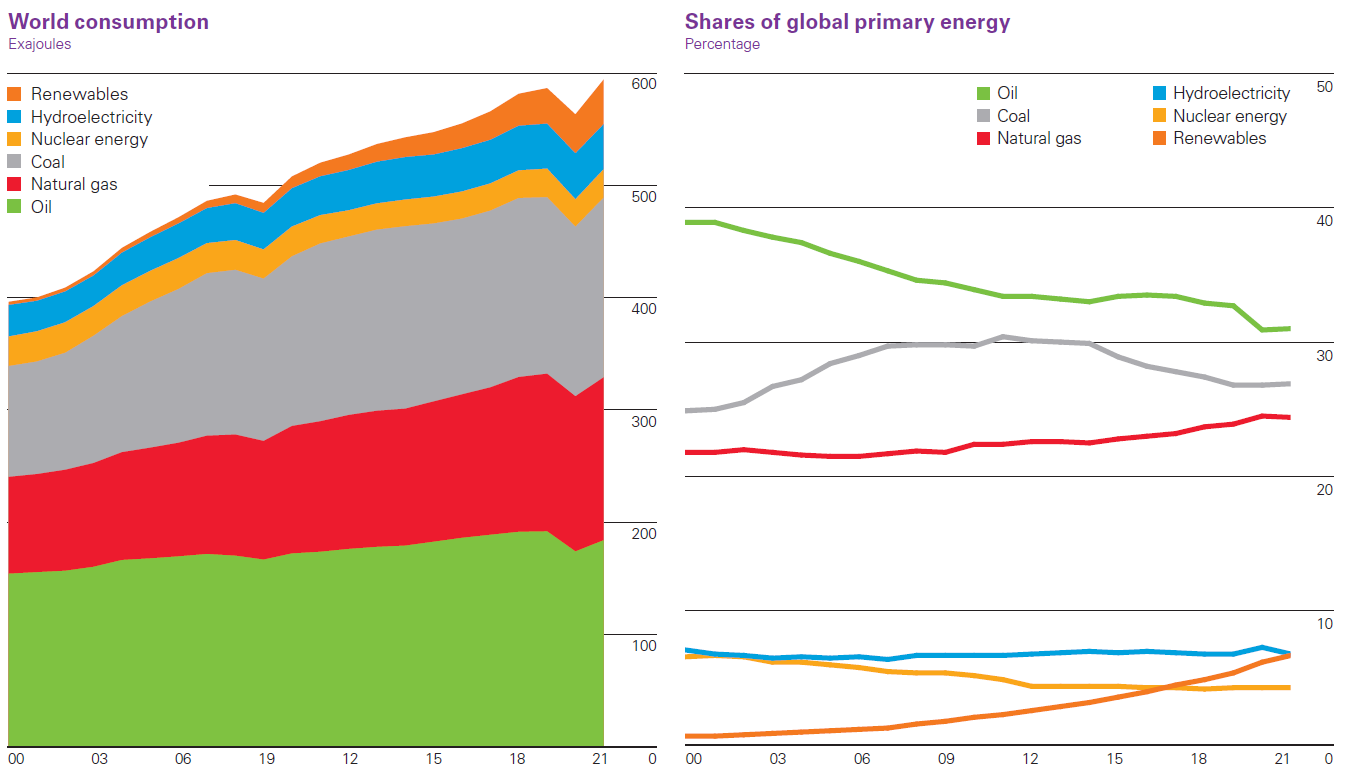
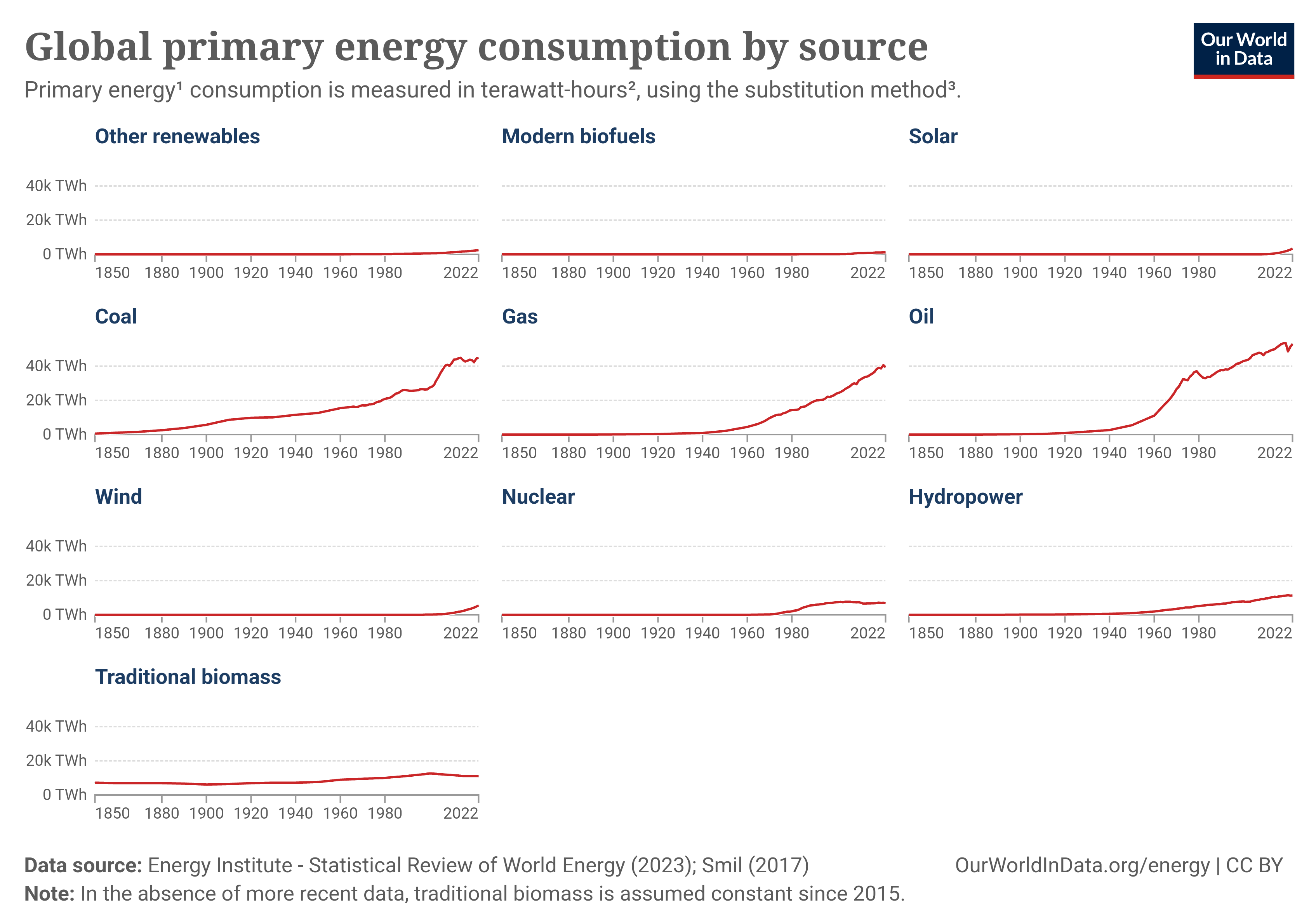
What can we do?
If Europe and Germany want to make a real difference, the only way is through technology. Invent emission-reducing technologies and make the world use them? Well, have we been and will we be fast enough? Probably not, severe climate change is likely no matter what we do. So, if we can't stop it, let's focus on technologies to reduce the effects of climate change and let us deal with it:
If you can't avoid the flood, start building ships!
Like Noah, who acted as an engineer, and didn't rely on prophets claiming to know how to calm the waves.
Seems, I'm not alone in this opinion ...
Konstantin Kisin, Oxford Union
Related Posts
Electric Vehicles and Clean Energy
Data Sources
- www.globalcarbonproject.org
- Statistical Review of World Energy
- Our World in Data: Global Energy Mix
- Energy Institute
If you have any comments, click here.